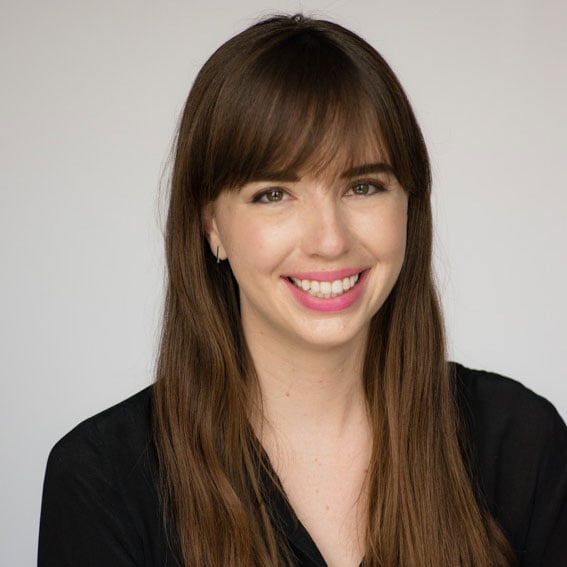
Q&A with Dr. Jennifer Winward, Educator and Entrepreneur
Dr. Winward discusses education, equity, and how she made the leap into ed-tech with her online tutoring platform.

Dr. Jennifer Winward is an instructor in the psychology department at the University of California, San Diego. She is also the founder of Winward Academy, an online tutoring platform.
ThinkCERCA: How did you make the transition from educator to entrepreneur?
Dr. Winward: A little over three years ago, I was sitting with one of my students, who was taking an online calculus class at Stanford. His mom Carol walked into the kitchen and reminded him that in the game of life, he was born on third base sliding into home and that students everywhere – who are equally deserving, smart, and hard working – could go their entire lives fighting for a chance at bat.
Carol was right. And in my role as a private tutor, I was making the opportunity gap wider. Carol’s message hit home for me (no pun intended), and inspired me to completely shift my focus to education equity.
In developing Winward Academy, my goal was to recreate the feeling of a one-on-one experience with a personalized, results-driven approach. Technology would, of course, improve accessibility. I wanted students everywhere to have a shot to vastly improve their mastery of the ACT and SAT, math class, and college applications.
What drives me every day isn’t just giving more deserving students a chance at bat, but making sure that every student, regardless of zip code, has the opportunity to hit a home run.
ThinkCERCA: What advice would you give to other educators looking to make the leap into ed-tech?
Dr. Winward: I believe that ed-tech should be the application of technology to education, not vice versa. The best online education is student-centric. It honors the 40 years of education and cognitive psychology research that identifies techniques to promote effective learning. Using technology that incorporates effective learning techniques into a self-paced, personalized, on-demand platform marries the best of education with the best of technology.
ThinkCERCA: How do you think ed-tech companies should balance the responsibility to provide equitable access to high-quality instruction with the realistic demands of running a business?
Dr. Winward: “Do well by doing good.” Many are familiar with this aphorism. It can and should apply to all ed-tech companies. Supporting education should be synonymous with supporting education equity. Those in the industry understand the importance of education and have the opportunity to enable high quality instruction for those students who are underserved.
Beyond doing good, how will incorporating philanthropy into your business help you do well? Research at both Harvard and Stanford reveals that successful companies are committed both to profits and to having a purpose beyond shareholder wealth. Further, a study by Deloitte found that employees working in companies involved in social issues demonstrate increased productivity and loyalty. All ed-tech companies should, at their core, actively pursue a mission for equitable access to high quality instruction.
ThinkCERCA: How can teachers balance personalized learning with digital tools and curricula?
Dr. Winward: As I noted earlier, education must come first, enhanced by digital tools. Teachers are responsible for laying the academic foundation for their students’ education and careers. Teachers help students identify interests and skills that provide the foundation that allows them to live self-sufficient, choice-filled lives. To the extent that digital tools allow teachers more time to better understand and support their students, technology is a success.
ThinkCERCA: What skills do you think are most crucial for today’s students to learn?
Dr. Winward: As a teaching professor at University of California, San Diego, I’ve graded thousands of students’ essays. As the lead instructor of Winward Academy, I’ve had countless conversations with principals, school district leaders, and teachers around the country. Based on what I’ve seen and heard, today’s students must work on their writing skills. To be confident, professional communicators, it’s essential that students master standard written English and present information in a cogent, well-reasoned fashion. I’m incredibly concerned by the pattern I see of degrading writing abilities and lack of ability to break down, understand, and critique or present a position in written form. It’s crucial that we empower students with foundational grammar and writing skills.
ThinkCERCA: How would you describe the role of technology in learning?
Dr. Winward: Technology only has a role in education if it’s executed in a way that honors learning theory and enhances the effectiveness of learning. Technological solutions should promote a growth mindset (Dweck, 2012) to ensure students understand that intelligence grows as they learn from their mistakes. Students must always receive specific, accurate feedback on all their answers, both correct and incorrect. Online lessons should be developed with purpose so that students build a foundation in new concepts and gradually increase the level of difficulty as they become more confident and independent in completing work (Wood, Bruner, & Ross, 1976). All lessons should also assess baseline and post-lesson accuracy so students get immediate feedback on their growth and can adjust their studying approach accordingly. Students should also be encouraged to paraphrase what they learn into their own words so they achieve a deeper level of understanding.

Mallory Busch is ThinkCERCA's Editor of Content Strategy. A graduate of Northwestern University, Mallory came to ThinkCERCA from stops in audience strategy at TIME magazine and news applications development at Chicago Tribune and The Texas Tribune. She holds degrees in Journalism and International Studies, and was a student fellow at Knight Lab in college.
